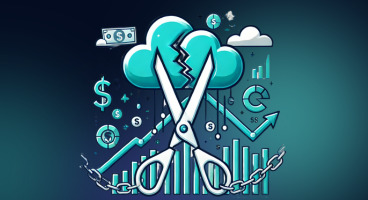Is there a business case for AI & Autonomous Systems?

At autocon we held a panel to generate in-depth insights on the business case of AI, tackling some big questions about autonomy and AI: How are big organizations using autonomy? To what extent is autonomy helpful? How willing are companies to adopt autonomy? How does the staff react to automation?How to go about the cost of using automations?
Understanding and Setting Up Error Budgets for Site Reliability Engineering (SRE)

Explore the critical role of error budgets in Site Reliability Engineering (SRE), detailing their definition, key components, and stakeholder involvement. It discusses various management approaches, the importance of maintenance windows, and how Sedai enhances error budget management through AI automation. Emphasizing continuous review reinforces balancing reliability and innovation for business success.
Understanding and Improving Service Reliability

In today's digital landscape, service reliability is essential for building customer trust and ensuring smooth operations. This blog explores the critical components of service reliability, including availability, durability, and dependability, while providing actionable strategies for businesses to enhance their systems. We discuss the importance of running reliability tests, conducting post-incident analyses, and effective incident response processes. With tools like Sedai, organizations can streamline their efforts, ensuring they meet and exceed customer expectations. Discover how investing in service reliability can drive long-term success and satisfaction for your business.
Kubernetes Cost: EKS vs AKS vs GKE

Uncover key strategies for optimizing Kubernetes costs across Amazon EKS, Azure AKS, and Google GKE. This article provides an in-depth comparison of pricing models, hidden expenses, and operational overheads. Learn how to calculate total Kubernetes costs and make informed decisions based on workload size and cloud provider. Additionally, discover best practices for optimizing multi-cloud and hybrid cloud strategies to achieve cost-efficiency in managing Kubernetes clusters.
Best Practices in Implementing Service Level Objectives (SLOs)

This article explores the significance of Service Level Objectives (SLOs) in enhancing service reliability and user satisfaction. It details methodologies for setting effective SLOs, the importance of error budgets, and best practices. It also highlights how Sedai’s AI-driven platform optimizes SLO management, empowering teams to focus on innovation while ensuring continuous service stability.
How to Calculate System Availability: Definition and Measurement

Understanding system availability is crucial for maintaining uptime in today's digital infrastructure. This article explores vital availability metrics, common causes of downtime, and how AI-driven platforms like Sedai can proactively enhance availability, reduce Failed Customer Interactions (FCIs), and optimize system performance for better efficiency.
Amazon ECS Cost Optimization: Best Tools

This blog highlights the top tools for Amazon ECS cost optimization, focusing on AI-driven platforms like Sedai and CloudHealth. It covers features such as task rightsizing, auto-scaling, and instance optimization, helping businesses reduce cloud costs and enhance ECS performance.
Strategies to Improve Cloud Efficiency and Optimize Resource Allocation

Discover essential strategies for maximizing cloud efficiency while minimizing costs. This article delves into optimizing cloud resources, managing cloud infrastructure effectively, and avoiding common pitfalls like over-provisioning and underutilization. Explore the financial, performance, and environmental impacts of cloud inefficiency, and uncover best practices for rightsizing, automated resource scaling, and sustainable operations. Learn how to leverage advanced tools to drive efficiency across AWS, Azure, and Google Cloud platforms.
18 Essential FinOps Platforms and Tools for 2024

Explore 18 essential FinOps platforms and tools for 2024, designed to optimize cloud costs, improve financial management, and drive efficiency in cloud operations. Find the best solutions to enhance your FinOps strategy and maximize cloud investments.
Best Cloud Cost Management Platforms in 2024

Discover the top 18 cloud cost management tools for 2024. Learn how to optimize your cloud spend, reduce waste, and align costs with business goals using AI-driven platforms across AWS, Azure, and Google Cloud.
Top Cloud Management Platforms in 2024

Explore the top 13 cloud management platforms for 2024. Learn about key features, emerging trends, and how to choose the right solution for your organization's multi-cloud strategy and optimization needs.
10 Ways AI is Revolutionizing FinOps

Discover how AI is transforming FinOps with autonomous optimization, predictive forecasting, and intelligent cost management. Learn 10 key ways AI revolutionizes cloud financial operations and prepares your organization for the future of FinOps.



















